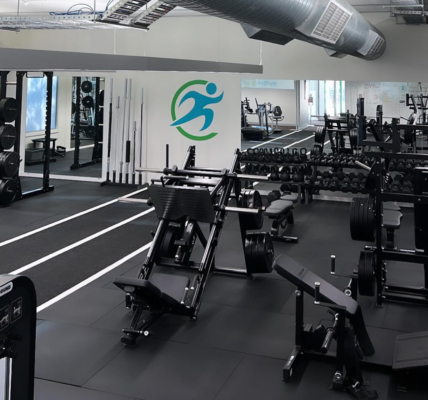When you face emotional challenges, it’s crucial to seek trusted counseling services that can guide you through the healing process. You might wonder what types of support are available and how to choose the right counselor for your needs. Understanding the importance of emotional health and the benefits of professional guidance can make a significant difference. As you explore these services, you’ll likely uncover insights that could transform your perspective on healing. But what should you consider when taking that first step?
Importance of Emotional Health
Emotional health plays a crucial role in your overall well-being, influencing how you think, feel, and interact with others. When you nurture your emotional health, you’re better equipped to handle stress, make decisions, and maintain healthy relationships. It’s not just about feeling happy; it’s about understanding and processing your emotions effectively.
When you’re emotionally healthy, you tend to experience lower levels of anxiety and depression. You can recognize your feelings and express them appropriately, which fosters better communication with those around you. This clarity helps you build stronger connections, whether with friends, family, or coworkers.
Moreover, emotional health impacts your physical health. Stress and unresolved emotions can lead to various health issues, including headaches, fatigue, and weakened immune systems. By prioritizing emotional wellness, you’re not only enhancing your mental state but also safeguarding your physical health.
You deserve to feel your best, and acknowledging the importance of emotional health is a significant first step. Seek out activities, practices, or support systems that nurture your emotional well-being, and watch how it positively transforms your life.
Your emotional health isn’t just a personal concern; it’s essential for a fulfilling life.
Types of Counseling Services
Counseling services can significantly enhance your emotional well-being by providing tailored support for various challenges.
There are different types of counseling services available, each designed to address specific needs and situations. Here are three common types you might consider:
- Individual Counseling: This one-on-one approach allows you to explore personal issues with a trained therapist. It’s a safe space to discuss feelings, thoughts, and behaviors, enabling you to gain insights and develop coping strategies.
- Group Counseling: In a group setting, you’ll interact with others facing similar challenges. This format fosters a sense of community and encourages sharing experiences, which can be incredibly validating and healing.
- Family Counseling: This type focuses on improving communication and resolving conflicts within families. It helps family members understand each other better and work towards healthier relationships.
Choosing the right type of counseling can make a world of difference in your journey toward emotional health.
Finding the Right Counselor
Finding the right counselor is crucial for your emotional well-being and can significantly impact your healing journey. Start by identifying what you need. Are you dealing with anxiety, depression, or relationship issues? Knowing your specific concerns will help narrow down your options.
Next, consider the counselor’s qualifications and experience. Look for licenses and certifications that match your needs. It’s also important to check their areas of expertise. Some counselors specialize in certain issues, while others take a more general approach.
Don’t underestimate the importance of personal fit. Schedule initial consultations to see how comfortable you feel. Trust your instincts—if you don’t feel a connection, it’s okay to keep looking.
You should also think about practicalities, like location and availability. Online counseling can offer flexibility, so consider this if you have a busy schedule.
Benefits of Professional Support
Seeking professional support can be a game-changer for anyone navigating life’s challenges. When you reach out for help, you open the door to numerous benefits that can significantly enhance your emotional well-being.
Here are three key advantages of professional support:
- Expert Guidance: Trained counselors provide insights and strategies tailored to your unique situation. They help you identify patterns in your thoughts and behaviors, equipping you with tools to cope and thrive.
- Safe Space: Therapy offers a judgment-free environment where you can express your feelings openly. This safe space allows you to explore your emotions without fear, fostering a deeper understanding of yourself.
- Accountability and Motivation: Regular sessions with a counselor encourage you to stay committed to your personal growth. They help keep you accountable for your goals, making it easier to stay motivated and focused on your journey toward healing.
Steps to Begin Your Journey
Starting your journey toward emotional health can feel overwhelming, but taking that first step is crucial. Begin by acknowledging your feelings and understanding that it’s okay to seek help.
Consider reflecting on what you’re experiencing—whether it’s anxiety, sadness, or stress—so you can articulate your emotions better when you reach out.
Next, research trusted counseling services in your area. Look for professionals who specialize in the issues you’re facing. Many offer initial consultations, which can help you gauge whether their approach aligns with your needs.
Don’t hesitate to ask questions during this meeting to ensure you feel comfortable psicologo en alcala madrid supported.
Once you’ve selected a counselor, commit to the process. Schedule regular sessions and be open during discussions. Change takes time and effort, so be patient with yourself.
It’s also beneficial to incorporate self-care practices into your routine, like journaling, meditation, or regular exercise, to enhance your emotional resilience.
Frequently Asked Questions
What Qualifications Should I Look for in a Counselor?
When choosing a counselor, look for relevant degrees, licenses, and certifications. Experience in your specific issues is crucial. Ensure they have a good reputation and can create a comfortable, supportive environment for your healing process.
How Much Do Counseling Services Typically Cost?
Counseling services typically range from $50 to $250 per session, depending on factors like location, therapist experience, and session length. It’s important to check your insurance coverage, as it can reduce your out-of-pocket costs.
Can I Have Counseling Sessions Online?
Yes, you can definitely have counseling sessions online! Many providers offer virtual options, allowing you to connect from the comfort of your home. It’s a convenient way to access support whenever you need it.
How Long Does Counseling Usually Last?
Counseling sessions typically last anywhere from 45 minutes to an hour. The number of sessions you’ll need varies based on your goals and progress, but many people find significant benefits within just a few sessions.
What Should I Do if I Feel Uncomfortable With My Counselor?
If you feel uncomfortable with your counselor, it’s important to communicate your feelings. Discuss your concerns directly with them, or consider finding a new counselor who better aligns with your needs and comfort level.
Conclusion
Taking the step toward counseling can be life-changing for your emotional health. By exploring the various types of services available and finding the right counselor, you’re investing in yourself and your well-being. Remember, seeking support isn’t a sign of weakness; it’s a courageous move towards healing and resilience. Embrace this journey with an open heart, and you’ll discover the strength within you to navigate life’s challenges more effectively. Your path to a brighter, healthier future starts now.



